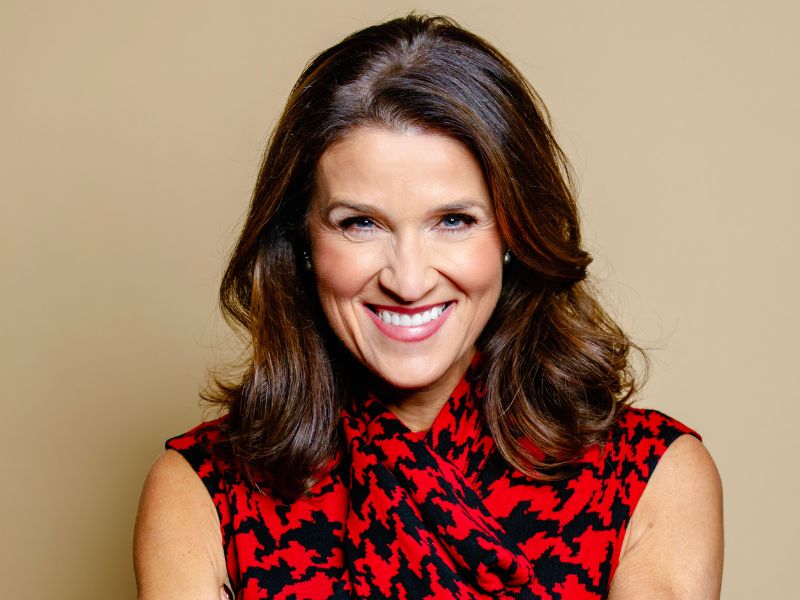
Article by Rebekah Hornsby, Product Manager at Zero Gravity
In the world of business, it’s not uncommon to hear stories of individuals who stumbled into their roles. I myself fell into a product management role as the first employee at a pre-seed tech startup, Zero Gravity.
Initially starting as a Marketing and Operations Associate, my job was very broad and varied, ranging from market research to designing notification flows and brainstorming ways to improve our conversion funnels. At the time, I didn’t even know what a Product Manager was or what they did until I had a chance conversation that transformed my career trajectory.
About six months into my role, I reached out to a Product Manager on Linkedin who worked on a similar product, to ask for help with a particular issue I was having with user engagement. In our initial call, we discussed potential solutions but also discussed product management more generally and her career to date. She pointed out that my role was clearly that of a Product Manager, and that I was doing myself a disservice to not have that job title.
After our conversation, I began to see myself as that and started to name the processes I had intuitively followed. I had words for the weekly conversations I had with users about their needs, pain points, and desires, “continuous discovery,” and for the mini experiments we ran before rolling out an idea fully, “assumptions testing.” After several conversations with her and a newfound sense of confidence, I was ready to speak to my company’s founder and formally move into a Product Manager role.
This experience made me realise the importance of mentoring in our professional lives. Often, we think of mentoring in a formal or corporate setting, but it can be as simple as a couple of conversations with someone a few years ahead of you. Mentoring is really about the democratisation of knowledge: the sharing of insights, opportunities, and networks that might have taken many years to develop otherwise.
My company’s founder agreed to my new title and several years later, I’m still the sole Product Manager at Zero Gravity, and I have a new mentor supporting me on my journey to Head of Product. We meet every couple of weeks to talk about the challenges I’m facing at work and the skills I’m trying to develop to move into a more senior, leadership role. My mentor started her first product job the year I was born, so she’s truly been there, done it, and seen it all. It’s clear that we can all benefit from mentoring.
Beyond my own experiences, I see the transformative impact that mentoring has on people from low-opportunity backgrounds, who paradoxically have the least accessibility to mentors. According to a study conducted by the US College Board, low-income students who had a mentor at university were 28% more likely to have a professional job and 20% more likely to earn a higher salary. Lack of a mentor at the university level can put people from low-opportunity backgrounds on the back foot throughout their early and mid-careers.
For instance, I recently spoke with Alice, a final-year undergraduate at UCL, who completed one of Zero Gravity’s career mentoring programmes with a global financial services firm. Growing up in rural Wales in a single-parent household, even the idea of attending a world-leading university seemed like an impossible challenge. In an area of high unemployment and low opportunity, the very concept of working in the City at one of the Big Four was alien. That is until she connected with her mentor.
The magic of mentoring lies in its power to open up professional networks and share the knowledge we now take for granted several years into our careers. Alice shared, “My mentor works in investment banking, which is the sector I’m hoping to go into now, so it’s been great to get in-depth insights into the industry that you can’t get from researching online.”
We still live in a society in which talent is evenly distributed, but opportunity is not. People from low-income and low-opportunity backgrounds are more likely to lack access to professional mentors who can guide them in their careers. Compared to those educated in private schools, they are over twice as likely to report having no such support. This gap in opportunity manifests itself throughout the careers of low-opportunity students: private school students are 78% more likely to become a partner at a law firm and 45% more likely to work in senior investment banking roles.
But mentoring can help level the playing field at each career stage. It provides a way for everyone to earn a strong professional network, regardless of their background. By offering guidance and insights, mentors can help talented individuals overcome barriers and succeed in their chosen careers through hard work and dedication. We must strive to democratise knowledge and opportunity, and mentoring is a powerful tool to help us achieve this goal.
 About the author
About the author
Rebekah Hornsby is Product Manager at Zero Gravity, joining the company as the founding team member in 2020, a couple of years after graduating from the University of Cambridge. Zero Gravity partners with employers to mentor students from low-opportunity backgrounds into internship and graduate roles, all through a free digital tech platform that reaches students across all four corners of the UK.








